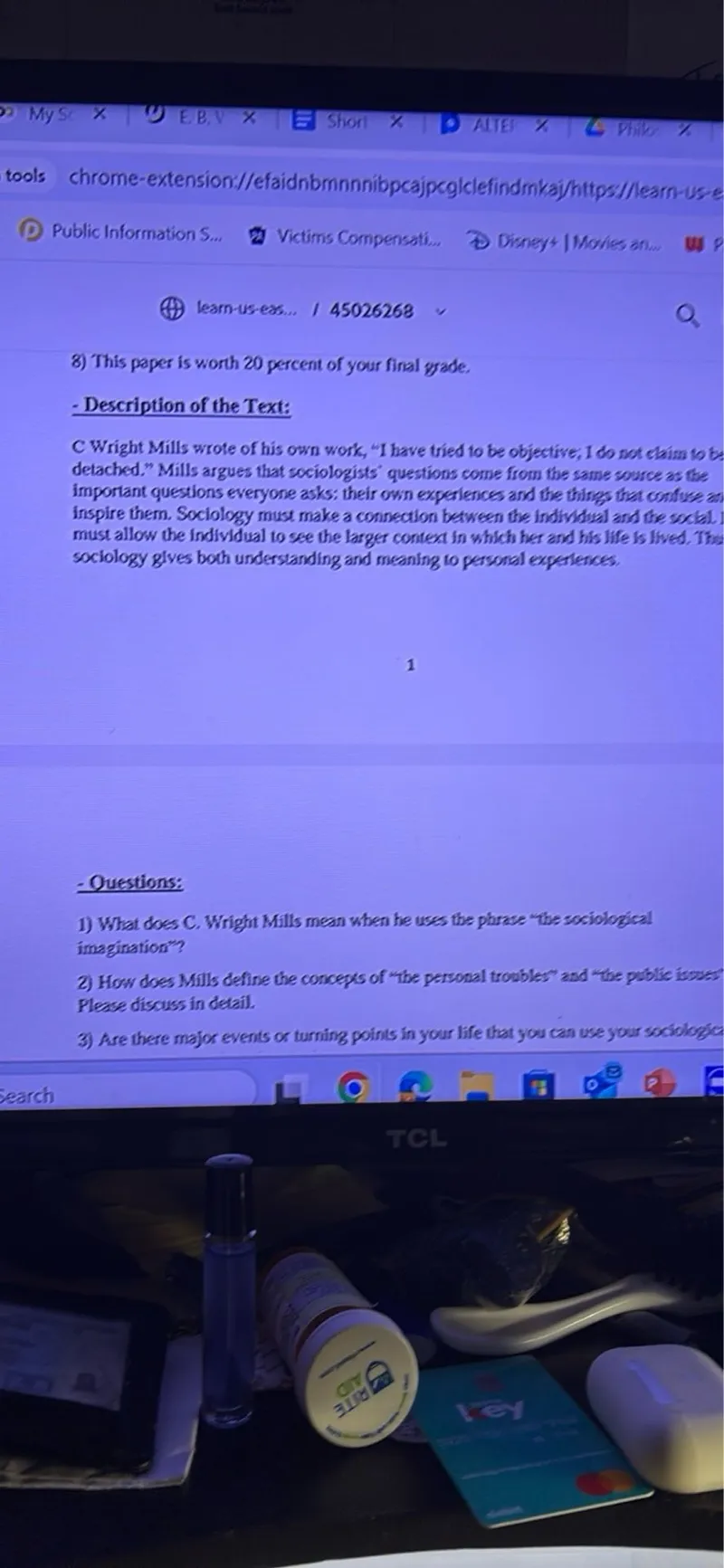Certainly! Let's address the questions based on C. Wright Mills' work and the concept of the sociological imagination.
- What does C. Wright Mills mean when he uses the phrase "the sociological imagination"?
C. Wright Mills introduced the concept of the "sociological imagination" to describe the ability to see the relationship between individual experiences and larger social influences. This involves understanding how personal challenges are often rooted in broader social or historical contexts. The sociological imagination allows individuals to step outside their personal circumstances and view them from a broader perspective, recognizing the interplay between personal experiences and societal structures.
For example, unemployment might be seen as a personal failure, but through the sociological imagination, one can understand it as a result of economic downturns, technological changes, or shifts in industry demands. This perspective helps individuals understand that their personal experiences are often linked to larger social forces.
- How does Mills define the concepts of "the personal troubles" and "the public issues"? Please discuss in detail.
C. Wright Mills distinguishes between "personal troubles" and "public issues" to highlight the different levels at which problems can be understood:
Personal Troubles: These are problems experienced by individuals that are often perceived as private matters. They are related to the individual's character, relationships, or immediate environment. For instance, if a person is unemployed, they might view it as a personal trouble, attributing it to their skills or efforts.
Public Issues: These are problems that transcend the individual and are linked to the broader social and structural context. Public issues are often systemic and affect large numbers of people. Using the same example of unemployment, when it is widespread, it becomes a public issue, reflecting economic policies, labor market trends, or technological advancements.
Mills argues that understanding the distinction and connection between personal troubles and public issues is crucial for sociological analysis. It allows individuals to see how their personal experiences are often shaped by larger social forces.
- Are there major events or turning points in your life that you can use your sociological imagination to understand?
To apply the sociological imagination to personal experiences, one might consider events such as education, career changes, or family dynamics. For instance, consider the experience of attending college. On a personal level, it might be seen as a pursuit of knowledge or career preparation. However, using the sociological imagination, one can understand it as part of broader social trends, such as the increasing importance of higher education in the job market, societal expectations, or economic factors influencing access to education.
Another example could be the impact of a global event, like the COVID-19 pandemic. Personally, it might have led to changes in work or social life. However, from a sociological perspective, it can be understood in terms of public health policies, economic disruptions, and shifts in social norms.
By using the sociological imagination, individuals can gain a deeper understanding of how their personal experiences are interconnected with larger social and historical contexts.






